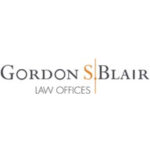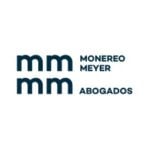-
How often is tax law amended and what is the process?
China’s tax law system is relatively complex. It includes laws enacted by the National People’s Congress and its Standing Committee, such as the Individual Income Tax Law; administrative regulations formulated by the State Council, such as the Implementing Regulations for the Individual Income Tax Law; and departmental rules and normative documents issued by the Ministry of Finance and the State Taxation Administration, such as the Administrative Measures for the Final Settlement of Comprehensive Income under the Individual Income Tax. Additionally, provincial people’s congresses, local governments, and tax authorities may, within their delegated authority under tax laws, administrative regulations, and departmental rules, formulate local tax regulations, local government rules, and tax normative documents.
China’s tax laws and administrative regulations primarily define the fundamental elements of specific tax types. They are not frequently amended; instead, revisions typically accompany each round of tax system reform, economic sector reform, or related legal amendments. Taking the Individual Income Tax Law reform as an example: In 2013, national authorities began considering a tax system reform to “establish a comprehensive and classified income taxation system.” In June 2018, the State Council drafted the Individual Income Tax Law Amendment (Draft), submitted it to the Standing Committee of the National People’s Congress for its first deliberation, and solicited public comments. In August 2018, the Standing Committee of the National People’s Congress voted to adopt the Decision on Amending the Individual Income Tax Law, completing the revision of the Individual Income Tax Law. Concurrently, to implement the revised law, the Ministry of Finance and State Taxation Administration drafted the Implementing Regulations for the Individual Income Tax Law (Revised Draft) and solicited public comments in October 2018. In December 2018, the State Council promulgated the revised Implementing Regulations for the Individual Income Tax Law.
Tax departmental rules and normative documents formulated by the Ministry of Finance and the State Taxation Administration provide detailed stipulations on specific rules for particular tax types, tax collection and administration, tax filing procedures, and other matters. These documents are modified and updated relatively frequently. The issuing authorities typically streamline, revise, and update rules and normative documents based on research, summarization of practical experience, and solicitation of opinions.
-
What are the principal administrative obligations of a taxpayer, i.e. regarding the filing of tax returns and the maintenance of records?
In China, all enterprises and individuals engaged in production or business operations must fulfill at least the following basic tax obligations:
(1) Tax Registration. Newly established enterprises are generally required to complete initial tax registration with the competent tax authority within 30 days of obtaining their business license. If any registered information changes during operation, modification registration must also be filed. Additionally, enterprises must apply for business suspension registration, business resumption registration, and cancellation registration in accordance with relevant regulations based on their specific circumstances.
(2) Establishment and Maintenance of Accounting Books. Enterprises must set up accounting books as required, record transactions and perform accounting based on lawful and valid vouchers, and maintain accounting records for the prescribed retention period. Typically, the retention period for accounting vouchers and books is 30 years.
(3) Tax filing. Enterprises and individuals engaged in production and business operations must file tax declarations within the specified deadlines. Taking corporate income tax as an example, the tax calculation period for corporate income tax is a calendar year, from January 1 to December 31, with the declaration deadline being from January 1 to May 31 of the following year. In addition to annual declarations, enterprises must also file quarterly prepayment declarations as required. The deadline for prepayment declarations is generally within 15 days after the end of each quarter.
(4) Other statutory obligations. Beyond the above, enterprises and individuals are also responsible for withholding and remitting taxes, accepting inspections in accordance with the law, and truthfully providing tax-related information and reporting tax-related details.
-
Who are the key tax authorities? How do they engage with taxpayers and how are tax issues resolved?
At the central level, the State Taxation Administration is a subsidiary agency directly under the State Council. It is primarily responsible for specifying detailed collection and administration matters in the implementation of tax laws and regulations, drafting tax law and regulation proposals, formulating implementation rules, organizing and executing tax collection and administration, participating in international tax relationship negotiations, and exercising dual leadership over tax authorities at all levels together with local governments.
At the local level, in July 2018, the local tax bureaus (established by people’s governments at the provincial, municipal, and county levels) and the national tax bureaus (set up by the State Taxation Administration in accordance with the three-tier administrative division of provinces, cities, and counties) were merged, and are now collectively referred to as tax bureaus. Following this institutional reform, tax bureaus have been established according to the three-tier administrative divisions across China: provincial tax bureaus, municipal tax bureaus, and county tax bureaus. These tax bureaus are comprehensive functional agencies responsible for full-scope tax administration, including system, institutional, staffing, budgetary, personnel, and operational management. They handle all aspects of tax collection and administration and policy implementation within their jurisdictions, operating under the dual leadership of the State Taxation Administration and local governments at various levels.
Tax Inspection Bureaus are established under provincial and municipal tax bureaus to specialize in tax audits. They collect case source information through various channels, including financial indicators and tax-related materials of local enterprises, intelligence from other tax bureaus, and leads transferred from administrative agencies. With upgrades to the Golden Tax System, tax authorities increasingly leverage tax big data and artificial intelligence to analyze potential risks. Cases with suspected violations are subject to audits initiated by Tax Inspection Bureaus, which subsequently issue tax reassessments and penalty decisions to taxpayers.
-
Are tax disputes heard by a court, tribunal or body independent of the tax authority? How long do such proceedings generally take?
In China, the primary legal remedies for tax disputes are administrative reconsideration and administrative litigation. Taxpayers must meet specific preconditions to initiate either procedure.
Tax disputes are categorized into two types: tax assessment disputes and non-assessment disputes. Tax assessment disputes include cases where taxpayers object to tax authorities’ determinations on taxpayer status, taxable object, scope of taxation, tax reductions or exemptions, tax refunds, tax rate, tax basis, collection stage, payment deadline, tax location, or collection method. Non-assessment disputes refer to cases where taxpayers object to administrative penalties, enforcement actions such as seizure, detention, freezing, or other non-assessment measures imposed by tax authorities. For tax assessment disputes, taxpayers must fully pay taxes and overdue fines or provide full tax guaranty within the prescribed period before applying for reconsideration. If dissatisfied with the reconsideration outcome, they may initiate litigation. Notably, taxpayers cannot bypass reconsideration and directly file litigation. For non-assessment disputes, taxpayers may directly apply for reconsideration or directly initiate litigation without prepaying taxes or fines, and without the requirement to exhaust reconsideration before litigation.
The reconsideration authority is the superior tax bureau, with a review period of sixty days extendable by thirty days. Time consumed in mediation during reconsideration is excluded from the review period. Litigation is reviewed by courts: first-instance proceedings take six months extendable by six months, while second-instance proceedings take three months extendable by three months. Based on our practical experience, complex tax dispute reconsideration typically requires no less than sixty days. If mediation occurs, the process may take three to six months or even over one year. For litigation cases, courts rarely extend proceedings due to stringent criteria but generally utilize the entire statutory time limit when handling tax cases.
-
What are the typical deadlines for the payment of taxes? Do special rules apply to disputed amounts of tax?
In China, the statutory payment deadlines for different tax types vary, and for many taxes, the payment deadline typically coincides with the filing deadline. Taking Corporate Income Tax and Value-Added Tax as examples: after completing the corporate income tax filing for the previous calendar year by May 31, enterprises must also settle the tax payment by May 31; similarly, after filing the Value-Added Tax return for the previous month by the 15th of each month, enterprises must pay the tax due by the 15th of that month. No special payment deadline rules apply to disputed taxes.
-
Are tax authorities subject to a duty of confidentiality in respect of taxpayer data?
Under China’s tax laws, tax authorities are obligated to maintain confidentiality regarding taxpayers’ commercial secrets and personal privacy. This includes technical information, business operations data, and personal matters that investors or operators wish to keep private. However, information concerning taxpayers’ tax violations and related details falls outside this confidentiality scope. Notably, courts, procuratorates, and public security organs may access, retrieve, and copy taxpayers’ confidential information from tax authorities, while mortgagees and pledgees may request tax authorities to provide and inquire about taxpayers’ tax arrears information.
Given that Chinese tax law only briefly enumerates the scope of tax-related confidential information without specifying clearer or more detailed items, enterprises may indicate to tax authorities whether submitted materials involve commercial secrets or information they wish to keep private when providing tax-related documents.
-
Is this jurisdiction a signatory (or does it propose to become a signatory) to the Common Reporting Standard? Does it maintain (or intend to maintain) a public register of beneficial ownership?
China signed the Multilateral Competent Authority Agreement (MCAA) in December 2015, with the agreement becoming effective in May 2017. In May 2017, China promulgated the Administrative Measures for Due Diligence of Non-Resident Financial Accounts, which took effect on July 1, 2017, thereby completing the domestic legal implementation of the Common Reporting Standard (CRS). In September 2018, Chinese tax authorities completed the first exchange of financial account tax-related information with tax competent authorities of other countries and regions. Currently, China has activated exchange relationships for CRS information with 108 countries and regions.
The Financial Action Task Force (FATF) noted in 2019 that China’s preemptive anti-money laundering risk prevention and control measures lacked effectiveness. To address this issue, the Regulations on the Registration and Administration of Market Entities formulated by the State Council in 2021 and the newly revised Anti-Money Laundering Law in 2024 established a framework for the beneficial ownership information filing system. In April 2024, the People’s Bank of China and the State Administration for Market Regulation formulated the Administrative Measures for Beneficial Owner Information, refining specific rules and relevant systems for beneficial ownership information filing.
Under the latest rules, companies, partnerships, and branches of foreign companies established in China must implement filing requirements, though trusts are not yet included. Beneficial owners required to be disclosed to market regulatory authorities refer to natural persons who directly or indirectly hold 25% or more equity, 25% or more profit entitlement, 25% or more voting rights, or exercise de facto control. Specific circumstances constituting de facto control include control through agreements, control by closely related persons, control through appointment authority, control over major operational decision-making and execution, control over financial revenues and expenditures, and control over significant assets and funds. It should be noted that branches of foreign companies must additionally register senior management personnel as beneficial owners, and exemption benefits enjoyed by foreign companies in their home countries do not apply in China. Enterprises refusing to file will be fined up to RMB 50,000.
Market regulatory authorities across China will transmit collected beneficial ownership filing information to the People’s Bank of China. The People’s Bank of China will establish an information management system to receive, store, and process this information. Beneficial ownership information will not be publicly disclosed, and the public cannot access it. State authorities requiring such information to perform statutory duties, as well as financial institutions fulfilling anti-money laundering and counter-terrorist financing obligations, may query beneficial ownership information from the People’s Bank of China. All parties with access to such information are obligated to maintain its confidentiality.
-
What are the tests for determining residence of business entities (including transparent entities)?
Under China’s Tax law, the tax residence of a corporation is determined by its statutory seat or place of effective management. The criteria for determining the place of effective management refer to the institution that exercises substantive and overall management and control over an enterprise’s production, operations, personnel, finance, and assets.
In China, typical tax-transparent entities include partnerships and individually-owned enterprises. These entities themselves do not bear income tax liability; instead, the partners of partnerships and the investors of individually-owned enterprises are subject to income tax obligations. Consequently, the tax residence status of partners and investors must be determined according to the rules governing the tax residence status of enterprises and natural persons.
-
Do tax authorities in this jurisdiction target cross border transactions within an international group? If so, how?
Chinese tax authorities have consistently prioritized anti-avoidance supervision of cross-border related-party transactions. Branches of multinational groups in China must annually submit related-party transaction reports to their competent tax authorities and provide contemporaneous documentation. Tax authorities will examine enterprises’ related-party transactions according to the arm’s length principle and substance-over-form doctrine, with particular focus on avoidance activities including transfer pricing, controlled foreign corporations, thin capitalization, treaty abuse, and indirect transfers of equity in resident enterprises by non-resident enterprises. Authorities will initiate special tax investigations and adjustments against avoidance enterprises to recover outstanding taxes.
-
Is there a controlled foreign corporation (CFC) regime or equivalent?
China has specific rules governing Controlled Foreign Corporations (CFCs). Where a foreign enterprise established by a Chinese resident enterprise, either alone or jointly with resident individuals, has an effective tax rate below 10%, and fails to distribute profits or reduces distributions without reasonable business necessity, the tax authorities may adjust upward the profit distribution attributable to the Chinese resident enterprise and impose income tax accordingly.
Chinese resident enterprise shareholders may claim exemption if they provide evidence demonstrating that the CFC either primarily derives active business income or has annual total profits below RMB 5 million.
-
Is there a transfer pricing regime? Is there a "thin capitalization" regime? Is there a "safe harbour" or is it possible to obtain an advance pricing agreement?
China has specialized transfer pricing management rules. Resident enterprises engaged in cross-border related-party transactions must submit the Annual Report of Related-Party Transactions for the preceding year to tax authorities by May 31 annually and prepare contemporaneous documentation—including master files, local files, and special issue files—by June 30. They must submit such documentation within 30 days upon tax authorities’ request. Notably, the types of contemporaneous documentation required vary based on related-party transaction amounts. Resident enterprises qualifying as multinational group headquarters must additionally prepare and submit Country-by-Country Reports.
The tax authorities review and assess related-party transactions in accordance with the arm’s length principle, applying appropriate transfer pricing methods such as the Comparable Uncontrolled Price Method, Resale Price Method, Cost Plus Method, Transactional Net Margin Method, Profit Split Method, or other compliant approaches. If the tax authorities determine that a company’s related-party transactions do not conform to the arm’s length principle, they may initiate a special tax investigation, recover the overdue tax, and charge interest. The interest rate is calculated based on the benchmark RMB loan interest rate published by the central bank for the same period, plus an additional 5 percentage points.
China has specialized thin capitalization rules. Interest expenses incurred by a resident enterprise shall not be fully deductible if the ratio of debt investment to equity investment received from its domestic and overseas related parties exceeds the safe harbor ratio. For financial institutions, the safe harbor ratio of debt to equity investment is 5:1, while for other enterprises, the ratio is 2:1.
Non-deductible interest expenses shall be calculated as: the total annual interest paid to related parties multiplied by (1–safe harbor ratio / actual debt-to-equity ratio). For the resident enterprise that paid the interest, the non-deductible amount shall not be deducted. Moreover, it must be allocated among the related parties in proportion to the actual interest paid to each related party relative to the total interest paid to all related parties, and treated as a dividend distribution. For overseas related parties, if the dividend tax rate is higher than the interest tax rate, additional tax shall be paid. If the dividend tax rate is lower than the interest tax rate, no tax refund shall be granted.
If an enterprise’s associated debt-to-equity ratio exceeds the safe harbor threshold, it may prepare a Thin Capitalization Special Matters Document as part of its contemporaneous documentation. Provided that the enterprise can fully demonstrate that the amount, interest rate, term, and financing conditions of the related-party debt investment comply with the arm’s length principle, the corresponding interest expenses may be deductible before tax and shall not be treated as a dividend distribution for tax purposes. The tax authorities may require the enterprise to provide the contemporaneous documentation for post-filing review and may initiate special tax adjustments and investigations.
China has specialized advance pricing arrangement (APA) rules. The types of APAs available for negotiation and signing with the Chinese tax authorities include unilateral, bilateral, and multilateral APAs. An APA generally remains effective for a period of three to five years. Upon request by the enterprise, the APA may be applied retroactively to previous years, with a maximum look-back period of ten years. Upon expiration, the APA automatically becomes invalid. Enterprises may apply for a renewal within 90 days prior to the expiration of the validity period. The negotiation process and detailed rules regarding APAs can be found in the Annual Report on China’s Advance Pricing Arrangements published by the State Taxation Administration.
-
Is there a general anti-avoidance rule (GAAR) and, if so, how is it enforced by tax authorities (e.g. in negotiations, litigation)?
China’s Corporate Income Tax Law establishes general anti-avoidance rules. In December 2014, the State Taxation Administration formulated the Administrative Measures for General Anti-Avoidance (Trial). China’s general anti-avoidance rules apply only to tax avoidance arrangements in cross-border transactions characterized by: lacking legitimate business purposes; transaction structures inconsistent with economic substance; and primarily aimed at reducing, exempting, or deferring tax liabilities.
When local tax authorities identify suspected avoidance arrangements, they must report level-by-level to the State Taxation Administration for approval before initiating investigations. Investigated enterprises must provide documentation explaining the arrangement’s background, commercial purpose, internal decision-making records, detailed transaction materials, and other requested documents. Local authorities typically draft adjustment opinions within nine months, subject to State Taxation Administration approval after level-by-level reporting. Enterprises may raise objections during investigations or pursue legal remedies through administrative reconsideration or litigation after final adjustment decisions.
-
Is there a digital services tax? If so, is there an intention to withdraw or amend it once a multilateral solution is in place?
China has not introduced a Digital Services Tax and does not support unilateral tax measures adopted by countries worldwide. In addressing challenges posed by the digital economy, the Chinese government maintains an approach of actively participating in the formulation of international tax rules concerning digital taxation, such as the international negotiations on the Two-Pillar Solution. China advocates that the design of the Two-Pillar Solution must fully consider national conditions and stakeholder concerns across jurisdictions, coordinate the relationship between new and existing taxing rights, and minimize impacts on substantive economic activities.
-
Have any of the OECD BEPS recommendations, including the BEPS 2.0 two-pillar approach been implemented or are any planned to be implemented?
The Chinese government has consistently actively participated in addressing the 15 BEPS Action Plans and has progressively refined China’s tax regime accordingly. In June 2016, the State Taxation Administration issued the Announcement on Matters Relating to Improved Administration of Related Party Declarations and Same-period Materials, incorporating the Country-by-Country Report and transfer pricing documentation required under BEPS Action 13 (Transfer Pricing Documentation and Country-by-Country Reporting) into China’s tax administration. In October 2016, the State Taxation Administration released the Announcement on Matters Relevant to Improving the Administration of Advance Pricing Arrangements, integrating policy recommendations from BEPS Action 14 (Making Dispute Resolution Mechanisms More Effective). In March 2017, the State Taxation Administration issued the Administrative Measures of Special Tax Investigation and Adjustment and Mutual Agreement Procedure, reflecting proposals from BEPS Actions 8-10 on transfer pricing in domestic regulations.To implement BEPS Action 15 (Developing a Multilateral Instrument to Modify Bilateral Tax Treaties), the Chinese government signed the Multilateral Convention to Implement Tax Treaty Related Measures to Prevent Base Erosion and Profit Shifting (BEPS) in June 2017, deposited its instrument of approval in May 2022, and the Convention entered into force for China on September 1, 2022, applying to 47 tax treaties signed by China. In February 2018, the State Taxation Administration issued the Announcement on Issues Concerning “Beneficial Owner” in Tax Treaties, drawing on BEPS Action 6 (Preventing the Granting of Treaty Benefits in Inappropriate Circumstances) to refine the concept, criteria, and methods for determining beneficial ownership under Chinese tax law.
Regarding the Two-Pillar Solution, the Chinese government has officially expressed its continued active participation in negotiations but has not yet formally signed onto the agreement. China’s progress on Pillar Two implementation remains mainly at the consultation stage. Tax authorities have begun collecting information from domestic multinational enterprise groups affected by Pillar Two, though a clear implementation timeline has not yet been established.
-
How has the OECD BEPS program impacted tax policies?
China has long actively participated in international tax rule-making and timely integrated policy recommendations from the BEPS Action Plan into domestic tax laws and regulations. Question 14 contains recent trends in China.
-
Does the tax system broadly follow the OECD Model i.e. does it have taxation of: a) business profits, b) employment income and pensions, c) VAT (or other indirect tax), d) savings income and royalties, e) income from land, f) capital gains, g) stamp and/or capital duties? If so, what are the current rates and how are they applied?
Corporate Income Tax
Resident enterprises shall pay enterprise income tax for their income sourced in and outside China. The tax period is based on each calendar year as a taxable year. The tax base is the taxable income calculated as revenues minus deductible costs and expenses. The standard applicable tax rate is 25%. Tax is prepaid monthly or quarterly with annual settlement completed before May 31 of the following year. These rules also apply to non-resident enterprises with permanent establishments in China.
A non-resident enterprise without a permanent establishment in China is subject to tax only on its income derived from within China at a rate of 10%, and may apply the lower tax rate provided in the relevant tax treaty if eligible. The tax is generally withheld and remitted by the domestic payer.
Employment Income and Pensions
For resident individuals, income from wages and salaries, remuneration for personal services, author’s remuneration, and royalty income are collectively referred to as comprehensive income. This income is consolidated and taxed on an annual basis, subject to a progressive tax rate ranging from 3% to 45%. Basic pensions received by individuals, which are contributed and distributed in accordance with unified state regulations, are exempt from individual income tax. After 2022, for supplementary pension insurance voluntarily contributed by individuals through market-based operations, the principal and investment returns received upon meeting the distribution conditions are subject to a separate individual income tax rate of 3%.
Value-Added Tax
Entities and individuals engaged in sale of goods, services, intangible assets and immovables and importation of goods within the territory of China shall pay Value-Added Tax. There are two methods for calculating VAT: the general calculation method and the simplified calculation method.
General Calculation Method: For taxpayers who qualify as general taxpayers, VAT is calculated on a monthly basis. The tax payable for the current period is equal to the output VAT for the period minus the input VAT for the period. Output VAT is calculated by multiplying the current period’s sales amount by the applicable tax rate. Input VAT refers to the VAT borne during procurement, including the VAT amount indicated on special VAT invoices obtained from suppliers and the VAT amount specified on customs import VAT payment certificates. Taxpayers are generally required to complete the declaration and payment of VAT for the current month by the 15th day of the following month. Regarding tax rates: The sale or import of general goods, provision of processing, repair, and replacement services, and leasing of tangible movable property are subject to a 13% tax rate. Leasing of real estate, sale of real estate (including land use rights), sale of specific services (construction, transportation, postal services, basic telecommunications), and sale or import of specific goods (e.g., agricultural products, water, natural gas, grain) are subject to a 9% tax rate. Sale of general services and sale of intangible assets (excluding land use rights) are subject to a 6% tax rate. Exported goods are subject to a 0% tax rate.
Simplified Calculation Method: For taxpayers who qualify as small-scale taxpayers or general taxpayers who are permitted to apply the simplified calculation method, the tax payable for the current period is equal to the current period’s sales amount multiplied by the collection rate, with no deduction for input VAT. The collection rate varies depending on the specific taxable activity, typically set at 3% or 5%.
Savings Income and Royalties
Interest income from personal savings deposits is exempt from individual income tax. Royalty income received by an individual refers to income derived from the provision of usage rights for patents, trademarks, copyrights, non-patented technology, and other licensed rights. This type of income is not taxed separately. Instead, it is combined with income from wages and salaries, remuneration for personal services, and author’s remuneration to form comprehensive income, which is subject to an annual tax calculation.
Land-Related Taxes
In China, the holding of land use rights is subject to Urban Land Use Tax and Cultivated Land Occupation Tax, while the transfer of land use rights is subject to Deed Tax and Land Appreciation Tax.
Capital Gains
China does not impose a dedicated capital gains tax. Enterprises subject to Corporate Income Tax shall recognize gains from equity transfers and gains from trading listed company shares as part of their current taxable income. The tax liability is computed and settled on an annual basis through the year-end reconciliation process. Dividend income derived by a resident enterprise from another resident enterprise based on an equity investment relationship is exempt from Corporate Income Tax.
For individuals, income obtained from equity transfers is subject to personal income tax under the category “income from property transfer” at a flat rate of 20%. Gains from the disposal of listed company shares are exempt from personal income tax. Additionally, dividend income received by individuals from holding listed company shares for more than one year is also exempt from tax.
Stamp Tax
China imposes a stamp tax. The scope of taxation covers four categories: Eleven types of written contracts (loan, financial leasing, sale, contractor agreement, construction project, transportation, technology, lease, custody, warehousing, and property insurance); Four types of property transfer documents (land use right grant documents, real estate transfer documents, share transfer documents, and intellectual property transfer documents); Business accounting books; and Securities transactions.
-
Is business tax levied on, broadly, the revenue profits of a business computed in accordance with accounting principles?
Corporate income taxpayers are required to maintain accounting books in accordance with the tax law and the Accounting Law, and conduct accounting based on the Accounting Standards for Business Enterprises. The taxable income for corporate income tax is calculated from accounting book data, but where differences exist between tax regulations and accounting standards, adjustments shall be made according to tax provisions.
-
Are common business vehicles such as companies, partnerships and trusts recognised as taxable entities or are they tax transparent?
In China, companies are standard taxable entities, whereas partnerships function as tax pass-through entities for income tax purposes but remain taxable for other categories of taxes. Chinese partnerships primarily consist of two types: General Partnerships and Limited Partnerships. For income tax, business-derived income from either partnership type is not taxed at the partnership level. Instead, individual partners pay Individual Income Tax, and corporate partners pay Corporate Income Tax. Where a partner is itself a partnership, the income tax obligation continues to pass through until reaching individual or corporate partners. However, partnerships act as independent taxable entities for turnover taxes, property taxes, and transaction-based taxes.
In China, a trust is defined as an entrustment arrangement rather than a legally recognized entity. Within the trust legal framework, the settlor, trustee, and beneficiary must each fulfill tax obligations according to specific tax regulations when disposing of or using trust property, or when receiving income or compensation related to the trust.
-
Is liability to business taxation based on tax residence or registration? If so, what are the tests?
Corporate Income Tax
The entities subject to corporate income tax obligations are classified into resident enterprises, establishments or places of business set up in China by non-resident enterprises, and non-resident enterprises themselves. A resident enterprise is liable for corporate income tax on its worldwide income derived both within and outside China. An establishment or place of business set up in China by a non-resident enterprise is liable for corporate income tax on its income sourced within China, as well as on income sourced outside China that is effectively connected with such establishment or place. A non-resident enterprise is subject to corporate income tax only on its passive income derived from within China.
An enterprise established in China under Chinese law qualifies as a resident enterprise. An enterprise established outside China under foreign law may also be treated as a resident enterprise if its effective management agency is located within China. The effective management agency refers to the body that exercises substantive and overall management and control over the enterprise’s production, operations, personnel, accounts, and property. An enterprise incorporated under foreign law without its effective management agency in China is considered a non-resident enterprise. Establishments or places of business set up in China by non-resident enterprises for engaging in production or business operations include:
(1) Management offices, business offices, and liaison offices;
(2) Factories, farms, and places where natural resources are exploited;
(3) Places where labor services are provided;
(4) Construction sites, assembly projects, installation projects, repair sites, exploration sites, and other project operations;
(5) Business agents;
(6) Other establishments or places engaged in production or business operations.
Individual Income Tax
The taxpayers of individual income tax include both resident individuals and non-resident individuals. An individual who has a domicile in China is considered a resident individual. An individual without a domicile in China who resides in the country for 183 days or more in a tax year is also classified as a resident individual. Those without a domicile who do not reside in China, or who reside in China for less than 183 days in a tax year, are considered non-resident individuals. Having a domicile in China refers to habitually residing in China due to household registration, family ties, or economic interests. The number of days of residence is counted based on each full 24-hour period spent in China; partial days are not included.
A resident individual is subject to individual income tax on worldwide income derived from both within and outside China, while a non-resident individual is taxed only on income derived from within China. The following types of income are considered derived from within China:
(1) Income derived from the provision of personal services within China due to employment, appointment, contract performance, or similar activities;
(2) Income derived from leasing property to lessees for use within China;
(3) Income derived from licensing the use of various licensed rights within China;
(4) Income derived from the transfer of real property located in China or other property transferred within China;
(5) Interest, dividends, and bonus income obtained from entities or resident individuals within China.
Two special exemption rules:
First, non-resident individuals who have no domicile within China and whose cumulative stay within China does not exceed 90 days in a tax year shall be exempt from individual income tax on income derived from providing services within China due to employment, engagement, or performance of contracts, provided that such income is paid by an overseas employer and is not borne by an establishment or place of business of that overseas employer within China.
Second, an individual without domicile who resides in China for 183 days or more in total within a tax year shall be subject to Individual Income Tax on worldwide income derived in that year, provided that in each of the six preceding years, the individual has resided in China for 183 days or more in total annually without a single departure exceeding 30 days. If in any of the preceding six years the individual’s cumulative days of residence in China were less than 183 days or any single departure exceeded 30 days, income derived from outside China and paid by foreign entities or individuals in that tax year shall be exempt from individual income tax.
-
Are there any favourable taxation regimes for particular areas (e.g. enterprise zones) or sectors (e.g. financial services)?
In China, tax incentives are regarded as vital tools for macroeconomic regulation and industrial development support. The Chinese government has long implemented numerous tax incentives of various types. Below introduces key regional tax incentives; for sector-specific incentives refer to Item 21.
Western Development
Enterprises established in western regions meeting two conditions may apply a 15% corporate income tax rate: (1) The enterprise engages in industries listed in the Catalogue of Encouraged Industries in Western Regions as its main business; (2) Main business income accounts for more than 60% of total income in the tax year.
Covered regions include 12 provincial areas: Inner Mongolia, Guangxi, Chongqing, Sichuan, Guizhou, Yunnan, Tibet, Shaanxi, Gansu, Qinghai, Ningxia, and Xinjiang; plus four prefecture-level areas: Xiangxi Tujia and Miao Autonomous Prefecture in Hunan Province, Enshi Tujia and Miao Autonomous Prefecture in Hubei Province, Yanbian Korean Autonomous Prefecture in Jilin Province, and Ganzhou City in Jiangxi Province. This policy remains effective until 2030 and will customarily be extended before expiration.
Hainan Free Trade Port
Enterprises established in Hainan meeting two conditions may apply a 15% corporate income tax rate: (1) The enterprise engages in industries listed in the Hainan Free Trade Port Encouraged Industrial Catalogue as its main business; (2) Main business income accounts for more than 60% of total income in the tax year. This tax incentive remains effective until 2027 and will customarily be extended before expiration.
Special Economic Zones and Shanghai Pudong New Area
Enterprises established in special economic zones and the Shanghai Pudong New Area that have obtained high-tech enterprise certification may be exempt from corporate income tax for the first two years starting from the tax year in which they first generate production and business income. From the third to the fifth year, they shall pay corporate income tax at a rate of 12.5%. The regions implementing this preferential tax policy include Shenzhen, Zhuhai, Shantou, Xiamen, Hainan, and the Shanghai Pudong New Area.
Lingang section of Shanghai Pilot Free Trade Zone
Enterprises registered in the Lingang Special Area that are engaged in core businesses related to integrated circuits, artificial intelligence, biomedicine, or civil aviation are eligible for a reduced corporate income tax rate of 15% for the first five years, starting from the year of establishment.
Guangzhou Nansha Pilot Zone
Enterprises established in Guangzhou Nansha Pilot Zone meeting two conditions may apply a 15% corporate income tax rate: (1) The enterprise engages in industries listed in the Guangzhou Nansha Corporate Income Tax Incentive Catalogue (2022 Edition) as its main business; (2) Main business income accounts for more than 60% of total income in the tax year.
-
Are there any special tax regimes for intellectual property, such as patent box?
China offers a range of tax incentives designed to encourage independent innovation and R&D in high-tech fields, which are distinct from the patent box. Below summarizes key incentives in this domain.
High-Tech Enterprises
Enterprises conducting R&D and technological transformation within National Key Supported High-Tech Fields to develop core proprietary intellectual property and operating based thereon may apply for high-tech enterprise certification. Certified enterprises qualify for a 15% corporate income tax rate.
Integrated Circuit and Software Enterprises
Integrated circuit manufacturers with line width below 28 nanometers and operating period over 15 years are exempt from corporate income tax for years one to ten. Enterprises with line width below 65 nanometers and operating period over 15 years are exempt for years one to five and taxed at 12.5% for years six to ten. Enterprises with line width below 130 nanometers and operating period over 10 years are exempt for years one to two and taxed at 12.5% for years three to five. These preferential periods commence from the first profit-making year.
Integrated circuit design equipment materials packaging testing enterprises and software enterprises are exempt from corporate income tax for years one to two and taxed at 12.5% for years three to five starting from their first profit-making year.
Additional Tax Deductions for R&D Expenses
Enterprises may claim an additional tax deduction for R&D expenses incurred in activities aimed at acquiring new scientific and technological knowledge, creatively applying such knowledge, or substantially improving technologies, products, services, or processes. For companies undertaking R&D activities, the actual incurred expenses not capitalized as intangible assets and charged directly to profit or loss in the current period will, in addition to being deducted in accordance with regulations, be further allowed a super-deduction of 100% of the actual expenses before taxes; if the expenses result in the formation of intangible assets, these can be amortized before taxes at 200% of the cost of the intangible assets.
Technology Transfer, Technology Development, and Technology Investment
Enterprises providing technology transfer, technology development, and related technical consulting and services are exempt from Value-Added Tax.
Within a tax year, the portion of enterprise income derived from technology transfer that does not exceed RMB 5 million is exempt from Corporate Income Tax. The portion exceeding RMB 5 million is subject to Corporate Income Tax at half of the statutory tax rate.
Where an enterprise or individual invests in a company using technology achievements as capital contribution, and the invested enterprise pays entirely in shares or equity, the investing enterprise or individual may defer tax payment. That is, the investment activity is not immediately treated as a technology transfer, and no income is recognized at the time of the equity transaction.
-
Is fiscal consolidation permitted? Are groups of companies recognised for tax purposes and, if so, are there any jurisdictional limitations on what can constitute a tax group? Is there a group contribution system or can losses otherwise be relieved across group companies?
In China, consolidated financial statements are a significant component of the Accounting Standards for Business Enterprises, typically applicable to large and medium-sized group enterprises. However, this does not substantively affect the corporate income tax liability. Within a group enterprise, the parent company and its subsidiaries, as independent legal entities, independently pay corporate income tax on their respective annual taxable profits. Losses incurred by a subsidiary cannot be used for pre-tax deductions by the parent company.
-
Are there any withholding taxes?
Non-resident enterprises and non-resident individuals receiving China-sourced income are subject to withholding at source. The payer must withhold tax from amounts paid or due and payable on each payment occasion and remit the tax to tax authorities on behalf of the recipient.
Under withholding at source, a non-resident taxpayer may self-assess whether it qualifies for treaty benefits. Those claiming treaty benefits must complete the Information Report on Treaty Benefits for Non-Resident Taxpayers and proactively submit it to the payer. It must also retain supporting documents such as a Certificate of Tax Residence, relevant business contracts, and beneficial ownership documentation for potential review. The payer submits this form as an attachment to the withholding tax return filed with competent tax authorities and withholds tax at the lower rate stipulated in the applicable tax treaty.
-
Are there any environmental taxes payable by businesses?
China enacted the Environmental Protection Tax Law in October 2018. Enterprises and other production and business entities that directly discharge taxable pollutants into the environment are taxpayers of the environmental protection tax. Taxable pollutants comprise four categories: atmospheric pollutants, water pollutants, solid waste, and noise. The tax base for atmospheric and water pollutants is determined based on the quantity of pollutant equivalents converted from the actual emissions. For solid waste, the tax base is calculated according to the emission quantity. In the case of noise, the tax base is determined by the decibel level exceeding the prescribed standards.
Additionally, carbon emission trading between enterprises is treated as the sale of intangible assets and is subject to Value-Added Tax and Corporate Income Tax.
-
Is dividend income received from resident and/or non-resident companies taxable?
Dividend income derived by a Chinese resident enterprise from another Chinese resident enterprise based on an equity investment relationship is exempt from corporate income tax. Dividend income received by a Chinese resident enterprise from a domestically listed public company is also exempt from corporate income tax if the enterprise has held the listed company’s shares for at least 12 months. Dividend income derived by a Chinese resident enterprise from an enterprise outside China based on an equity investment relationship shall be included in current profits and losses for corporate income tax purposes. The above rules equally apply to permanent establishments established by non-resident enterprises within China.
Dividend income derived by a non-resident enterprise from a Chinese resident enterprise based on an equity investment relationship shall be subject to withholding tax, which shall be withheld at source by the resident enterprise at a rate of 10%. Where a reduced tax rate is stipulated under a tax treaty, the non-resident enterprise may apply for the preferential treaty treatment. If a non-resident enterprise reinvests profits distributed by a Chinese resident enterprise within China, the withholding tax may be temporarily deferred. Additionally, 10% of the reinvested amount may be used to offset the tax payable for all categories of corporate income tax owed by the non-resident enterprise in China.
-
What are the advantages and disadvantages offered by your jurisdiction to an international group seeking to relocate activities?
The practices of over four decades of reform and opening up and over two decades of World Trade Organization membership have exerted a profound and far-reaching positive impact on the establishment, optimization, and refinement of China’s tax legal system. China’s current tax structure, legal framework, specific rules, and tax collection and administration systems have matured and stabilized. China actively participates in both complying with and shaping international tax rules, and has largely achieved modernization in tax governance. Furthermore, China’s foreign-related tax policies increasingly emphasize rule of law and fair competition, while providing targeted incentives for regional coordinated development and industrial transformation and upgrading.
At the same time, China’s tax legal system is complex, with highly specialized rules that undergo frequent adjustments and changes. This imposes high demands on foreign investors regarding tax compliance capabilities in China, particularly in addressing tax disputes and preventing or handling tax-related criminal risks. We recommend that foreign investors proactively seek professional support and assistance from domestic tax lawyers and other tax professionals throughout the entire investment process in China, in areas such as tax compliance and planning, tax risk management, tax dispute resolution, and prevention and control of tax-related criminal risks.
China: Tax
This country-specific Q&A provides an overview of Tax laws and regulations applicable in China.
-
How often is tax law amended and what is the process?
-
What are the principal administrative obligations of a taxpayer, i.e. regarding the filing of tax returns and the maintenance of records?
-
Who are the key tax authorities? How do they engage with taxpayers and how are tax issues resolved?
-
Are tax disputes heard by a court, tribunal or body independent of the tax authority? How long do such proceedings generally take?
-
What are the typical deadlines for the payment of taxes? Do special rules apply to disputed amounts of tax?
-
Are tax authorities subject to a duty of confidentiality in respect of taxpayer data?
-
Is this jurisdiction a signatory (or does it propose to become a signatory) to the Common Reporting Standard? Does it maintain (or intend to maintain) a public register of beneficial ownership?
-
What are the tests for determining residence of business entities (including transparent entities)?
-
Do tax authorities in this jurisdiction target cross border transactions within an international group? If so, how?
-
Is there a controlled foreign corporation (CFC) regime or equivalent?
-
Is there a transfer pricing regime? Is there a "thin capitalization" regime? Is there a "safe harbour" or is it possible to obtain an advance pricing agreement?
-
Is there a general anti-avoidance rule (GAAR) and, if so, how is it enforced by tax authorities (e.g. in negotiations, litigation)?
-
Is there a digital services tax? If so, is there an intention to withdraw or amend it once a multilateral solution is in place?
-
Have any of the OECD BEPS recommendations, including the BEPS 2.0 two-pillar approach been implemented or are any planned to be implemented?
-
How has the OECD BEPS program impacted tax policies?
-
Does the tax system broadly follow the OECD Model i.e. does it have taxation of: a) business profits, b) employment income and pensions, c) VAT (or other indirect tax), d) savings income and royalties, e) income from land, f) capital gains, g) stamp and/or capital duties? If so, what are the current rates and how are they applied?
-
Is business tax levied on, broadly, the revenue profits of a business computed in accordance with accounting principles?
-
Are common business vehicles such as companies, partnerships and trusts recognised as taxable entities or are they tax transparent?
-
Is liability to business taxation based on tax residence or registration? If so, what are the tests?
-
Are there any favourable taxation regimes for particular areas (e.g. enterprise zones) or sectors (e.g. financial services)?
-
Are there any special tax regimes for intellectual property, such as patent box?
-
Is fiscal consolidation permitted? Are groups of companies recognised for tax purposes and, if so, are there any jurisdictional limitations on what can constitute a tax group? Is there a group contribution system or can losses otherwise be relieved across group companies?
-
Are there any withholding taxes?
-
Are there any environmental taxes payable by businesses?
-
Is dividend income received from resident and/or non-resident companies taxable?
-
What are the advantages and disadvantages offered by your jurisdiction to an international group seeking to relocate activities?





























